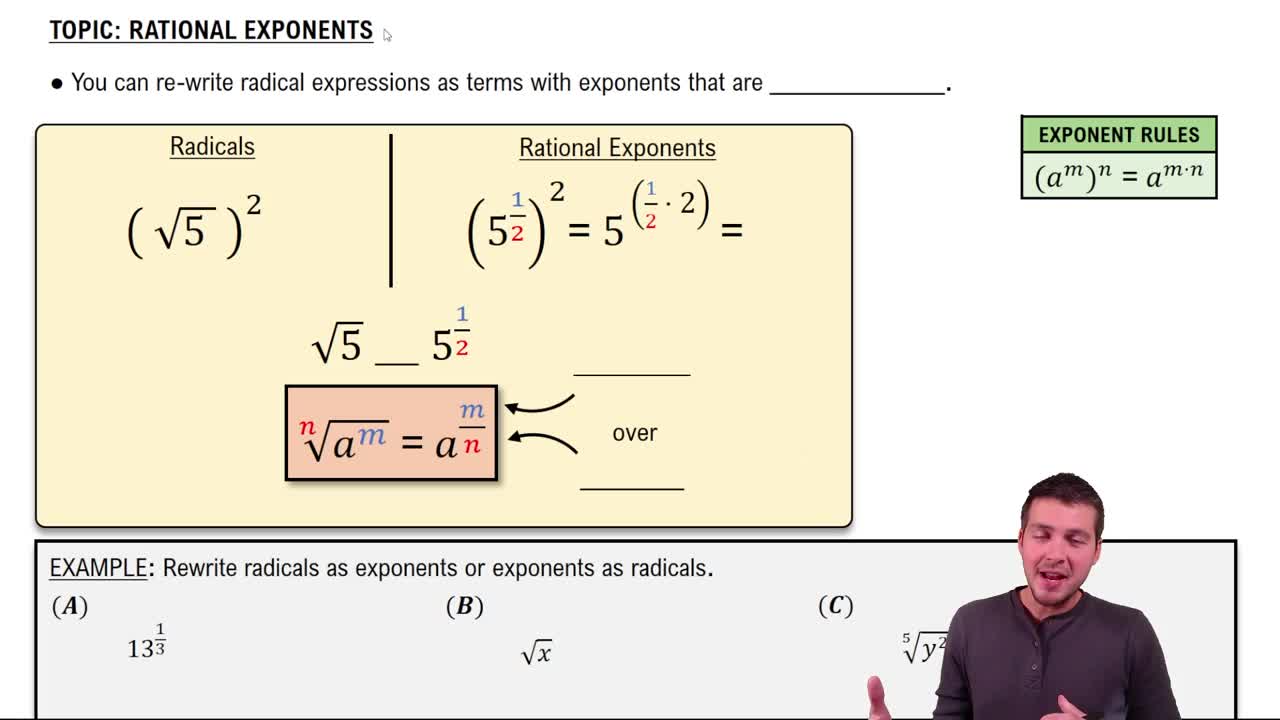Here are the essential concepts you must grasp in order to answer the question correctly.
Exponents and Their Properties
Understanding exponents is crucial in algebra, particularly the rules governing their manipulation. The product of powers rule states that when multiplying two expressions with the same base, you add their exponents. For example, m^a * m^b = m^(a+b). This principle is essential for simplifying expressions involving exponents.
Recommended video:
Simplifying Expressions
Simplifying expressions involves reducing them to their most basic form, which often requires applying algebraic rules. In the context of exponents, this means combining like terms and using exponent rules to rewrite expressions. For instance, (m^2/3)(m^1/3) can be simplified by adding the exponents, leading to m^(2/3 + 1/3).
Recommended video:
Simplifying Algebraic Expressions
True or False Statements in Algebra
Determining the truth value of algebraic statements requires a solid understanding of the underlying mathematical principles. A statement is true if both sides of the equation are equal after simplification. If they are not, the statement is false, and one must find the correct expression that makes the equation valid.
Recommended video:
Introduction to Algebraic Expressions



